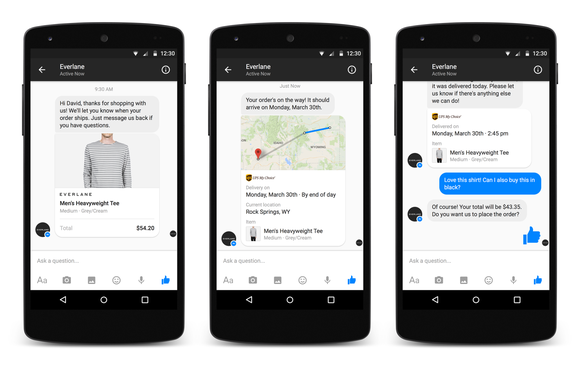It's Official: Facebook Messenger Has Become "Too Cluttered"
Messenger has become one of Facebook's (NASDAQ: FB) three billion-user services, with over 1.3 billion monthly active users (MAUs) at last count. Instagram will inevitably become the fourth; it hit 800 million MAUs late last year. The other two billion-user platforms are its core Facebook service as well as WhatsApp, another messaging service. That puts increasing pressure on Facebook from shareholders to actually build a business out of the latter. It's worth noting that Messenger faces less of this pressure, as it was internally developed, in contrast to the $21.8 billion acquisition of WhatsApp.
Facebook has been adding an increasing number of features to Messenger as it tries to expand its role in users' lives, but it now seems that the social network took its famous "move fast and break things" motto a bit too literally. Messenger has become a mess, engendering potential confusion among users.

Messenger for Business is going to be where the money's at. Image source: Facebook.
Too much, too fast
Messenger chief David Marcus acknowledged in a Facebook post that Messenger had become too bloated, and that his team will focus on simplifying the service in 2018:
Over the last two years, we built a lot of capabilities to find the features that continue to set us apart. A lot of them have found their product market fit; some haven't. While we raced to build these new features, the app became too cluttered. Expect to see us invest in massively simplifying and streamlining Messenger this year.
It's not clear which specific features Marcus is referring to that detract from the experience, but Facebook launched games in Messenger in late 2016 and a Discover section in mid-2017 as a way to introduce users to chatbots. Facebook has also been testing an ad carousel in Messenger since last summer, despite Mark Zuckerberg's view (expressed at the time of the WhatsApp acquisition) that ads are a terrible way to monetize a messaging service. In fact, Marcus predicts that Messenger will become an important marketing channel for advertisers, but it's not clear what form those advertisements will take if not display ads in a carousel.
Two trends that definitely aren't going away
Over the past year, Facebook has replicated countless Snap (NYSE: SNAP) features as messaging fundamentally becomes more visual. More than anything, Snapchat is primarily a photo/video messaging service, with poor engagement in other parts of its app. That's in part why Facebook added a camera to Messenger at the end of 2016, and the ongoing trend toward visual messaging will continue. Marcus says that visual messaging "really started to reach ubiquity in 2017."
There's also the ongoing push to connect users to brands for customer service interactions, ideally fielded by chatbots for scalability. Facebook commissioned a Nielsen study a while back that found that 56% of people would rather message a business than call a customer service representative. This is by far the idea with the greatest financial potential, as investing in customer service channels is a base requirement for most businesses.
Facebook just needs to keep working on building compelling chatbots to handle those interactions (the recent shutdown of M notwithstanding).
More From The Motley Fool
Evan Niu, CFA owns shares of Facebook. The Motley Fool owns shares of and recommends Facebook. The Motley Fool has a disclosure policy.
